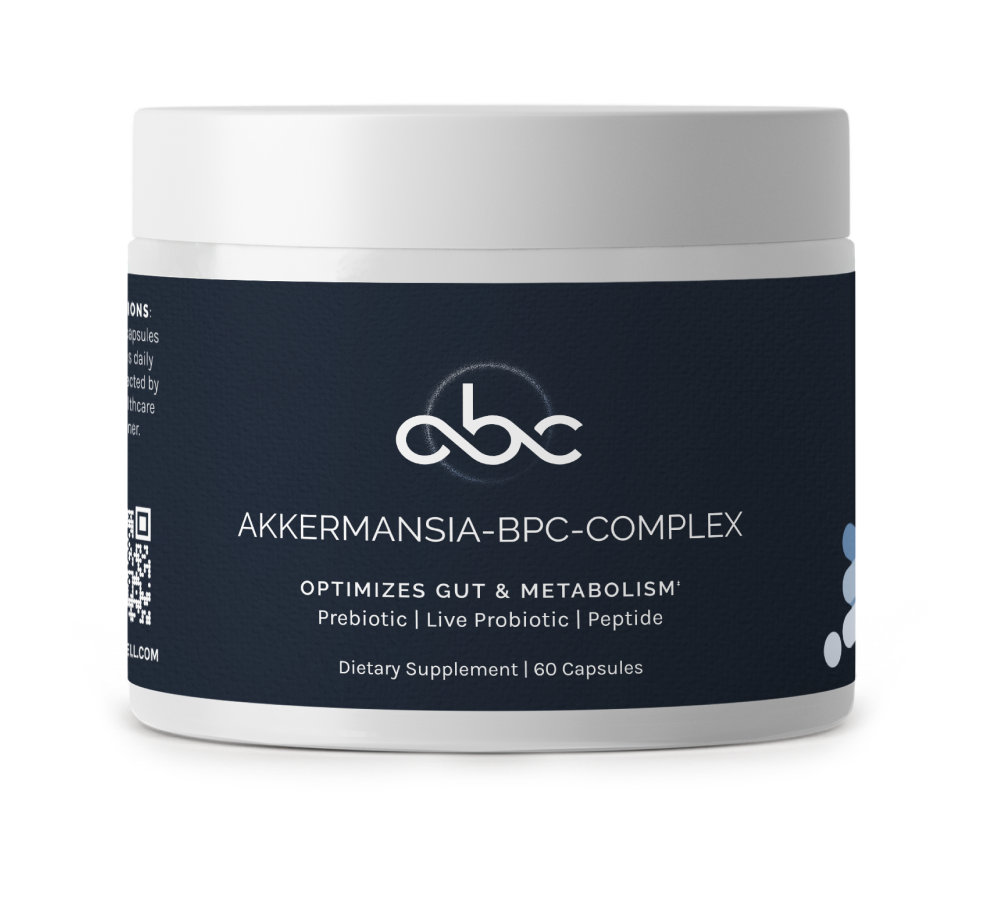Exhausted, with skin that's lost its glow and weight that just wouldn't budge?
If you're nodding your head right now, you're not alone. Like millions of women, you've probably tried everything—fancy creams, new supplements, the latest diets—only to end up right where you started. But what if the answer isn’t in adding another product to your routine but in using something your body already understands?
Meet peptides: powerful little molecules that could be the missing link in your wellness journey, working with your body from the inside out.
What are peptides, and why do they matter?
Think of peptides as tiny messengers within your body, quietly orchestrating essential processes that keep you feeling vibrant and healthy. These short chains of amino acids are like streamlined versions of proteins, playing a crucial role in how you look, feel, and function each day.

Peptides naturally support energy, skin health, and recovery, keeping your body in balance for overall well-being.
Here’s the exciting part: scientists have developed peptides that match what your body already produces, offering a new way to work with your body for transformative wellness results—and that's where peptide therapy comes in.
Related reading:
Peptide therapy for women at a glance
Imagine having the ability to send precisely targeted messages to specific areas of your body, whether you're looking to restore your skin's youthful bounce, build lean muscle mass, sharpen mental focus, or support growth hormone levels. Peptide therapy, a form of targeted peptide treatment, acts as a direct line to your body's command center, helping you enhance the processes that matter most to your health goals.
The best part? Because peptides speak your body's language, they work in harmony with your natural systems. They enhance skin health, help maintain healthy blood flow, and assist in regulating blood sugar levels—making them effective for body fat management and promoting balance in the nervous system and other body processes.

It's important to remember though that their effectiveness can vary depending on the type of peptide and individual factors. Peptides primarily support bodily processes rather than directly "managing" or "balancing" them. They interact with your body's natural systems, encouraging and enhancing functions that influence fat metabolism, nervous system health, and general well-being.
Types of peptides for women
For women exploring peptide therapy, there are several peptides that target specific wellness and beauty goals. Here’s a look at some of the most popular:
BPC-157

BPC-157 is a peptide derived from a naturally occurring protein in the stomach—Body Protection Compound (BPC)—that is known for its rejuvenating properties and ability to support the body's natural antioxidant response. It’s often used to aid recovery, especially for joint health and digestion.
For women, BPC-157 may support faster recovery after intense workouts and even offer benefits for cognitive function, making it a versatile option for those looking to enhance overall health.
Related reading:
- How to Choose the Right BPC-157 Peptide: Everything You Need to Know
- The Ultimate Longevity Duo: Akkermansia & BPC-157
GHK-Cu
GHK-Cu is a naturally occurring peptide complex composed of glycine, histidine, and lysine, bound with copper. Often called the "beauty peptide," it's known for promoting skin health and rejuvenation through collagen and elastin production, which can reduce the appearance of fine lines and wrinkles while enhancing skin firmness and resilience.
PTD-DBM
PTD-DBM is a peptide gaining attention for its role in hair health. Specifically, it has shown promise in promoting hair growth and preventing hair loss, making it an option for women concerned about thinning hair. This peptide works by targeting pathways that strengthen hair follicles and improve scalp health, supporting fuller, healthier hair over time.
Leuphasyl
Leuphasyl is popular in the anti-aging skincare category. It helps reduce the appearance of fine lines and wrinkles by relaxing facial muscles, offering a non-invasive alternative to treatments like Botox. For women looking to maintain a youthful complexion, Leuphasyl may provide a smoother skin texture and help reduce expression lines, especially around the eyes and forehead.
Argireline
Often referred to as "Botox in a jar," Argireline is another peptide widely used in anti-aging products. It works similarly to Leuphasyl by relaxing facial muscles even during periods of repetitive facial expressions. Women often choose Argireline for its ability to target dynamic wrinkles, such as crow's feet and smile lines, without requiring injectable treatments.
A gentle reminder: Use the above peptides under the guidance of a healthcare professional, as they may interact with other medications. Also, peptide supplementation is not a substitute for prescribed treatments.
Key benefits of peptides for women
Peptide therapy offers a range of wellness-focused advantages tailored to women's unique health needs, from skin vitality to hormone support. Here’s a look at some key BPC-157 benefits for women and other peptide therapy advantages:
Energy and endurance
For women seeking more energy and stamina, certain peptides, such as BPC-157 and buckwheat peptides, are among the best peptide options for energy. Derived from buckwheat protein, buckwheat peptides are known for their antioxidant and anti-fatigue properties, helping sustain energy levels and reduce feelings of physical fatigue.
Weight loss and fat management
Peptides that support fat metabolism, like BPC-157, may aid in fat breakdown and help manage appetite. These peptides work best alongside a balanced diet and regular exercise, complementing weight management efforts.
Hormonal balance and menopause support
Hormonal fluctuations, especially during menopause, can disrupt sleep, mood, and overall well-being. The potential of peptides for menopause is promising, as they support hormone balance and may provide relief from common menopause symptoms like hot flashes, mood swings, and energy dips.
Related reading:
Improved skin and hair health

Peptides for skin stimulate collagen production, helping to firm skin and potentially thicken hair. This is particularly appealing for anti-aging, as peptides can support skin elasticity and help reduce the appearance of fine lines.
Enhanced healing and recovery
For muscle and tissue repair, peptides like BPC-157 can be transformative. By offering soft tissue support, these peptides promote better resilience during physical activity and exercise.
Peptides for women: Recommended amount and safety considerations

When considering peptide therapy, understanding the proper amount and safety guidelines is crucial for achieving the best results. Here are some important points to keep in mind for safe and effective use:
Typical recommended amounts
Peptide serving sizes can vary based on individual needs and specific health goals. For instance, BPC-157 is available in different formulations to accommodate varying requirements:
- 250 mcg: Ideal for individuals seeking maintenance support.
- 500 mcg: A higher potency option that can be used where more support is needed.
InfiniWell offers several BPC-157 formulations, including:
- BPC-157 Original (250 mcg)
- BPC-157 Delayed (250 mcg)
- BPC-157 Rapid (250 mcg)
- BPC-157 Pro (500 mcg)
- BPC-157 Delayed Pro (500 mcg)
- BPC-157 Rapid Pro (500 mcg)
Consult your doctor for safe and effective peptide use
Consulting with a healthcare professional before starting peptide therapy cannot be overstated. Your doctor can help determine if peptides are right for you and the appropriate amount suited to your individual needs.
Achieving wellness with peptide therapy through InfiniWell
Peptides offer various benefits tailored to women's health needs, including support for skincare, metabolism, hormone balance, and recovery. InfiniWell is dedicated to delivering high-quality peptide products that enhance overall wellness.
With guidance from your doctor, explore our carefully formulated peptide range as part of your wellness journey.
SOURCES:
https://www.webmd.com/a-to-z-guides/what-are-peptides
https://www.medicalnewstoday.com/articles/326701
https://pmc.ncbi.nlm.nih.gov/articles/PMC9954685/
https://www.mdpi.com/2079-9284/1/2/75
https://onlinelibrary.wiley.com/doi/full/10.1002/fsn3.3166
https://pubmed.ncbi.nlm.nih.gov/23417317/











